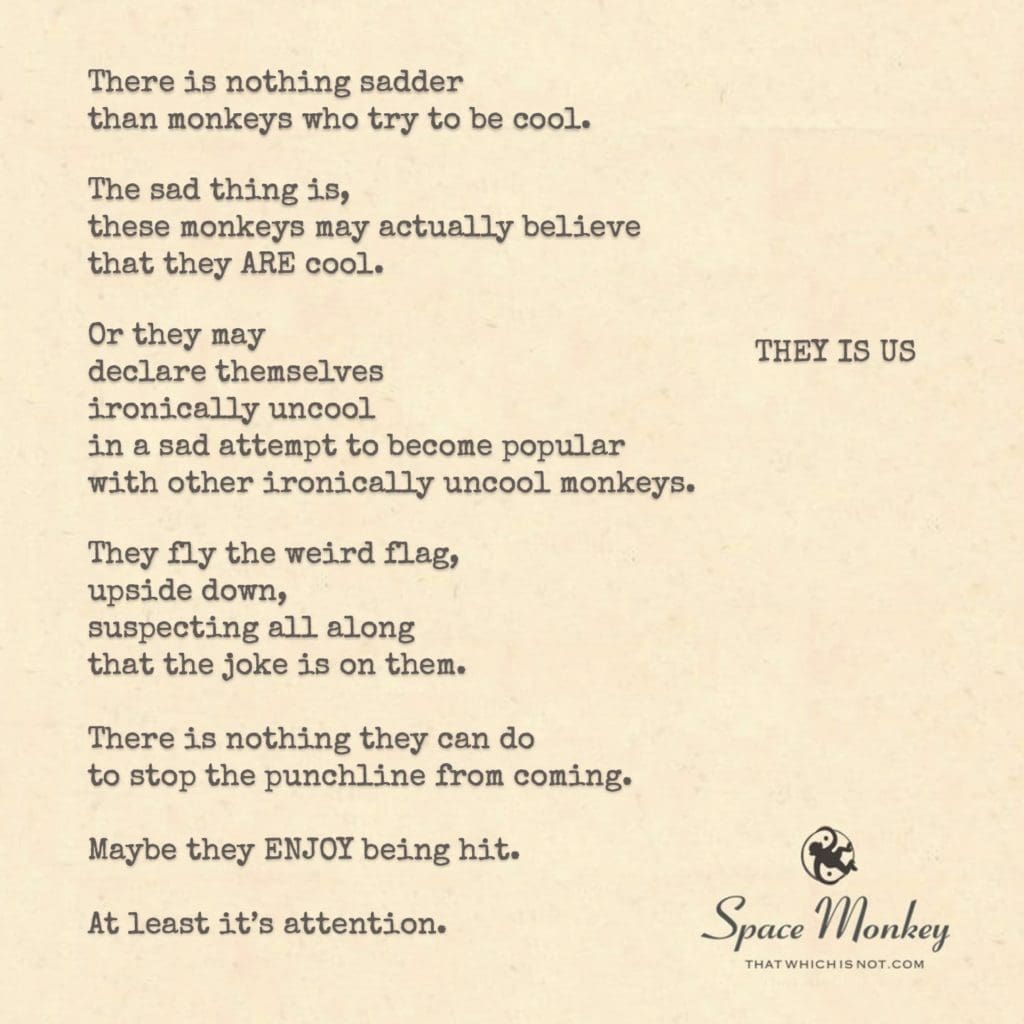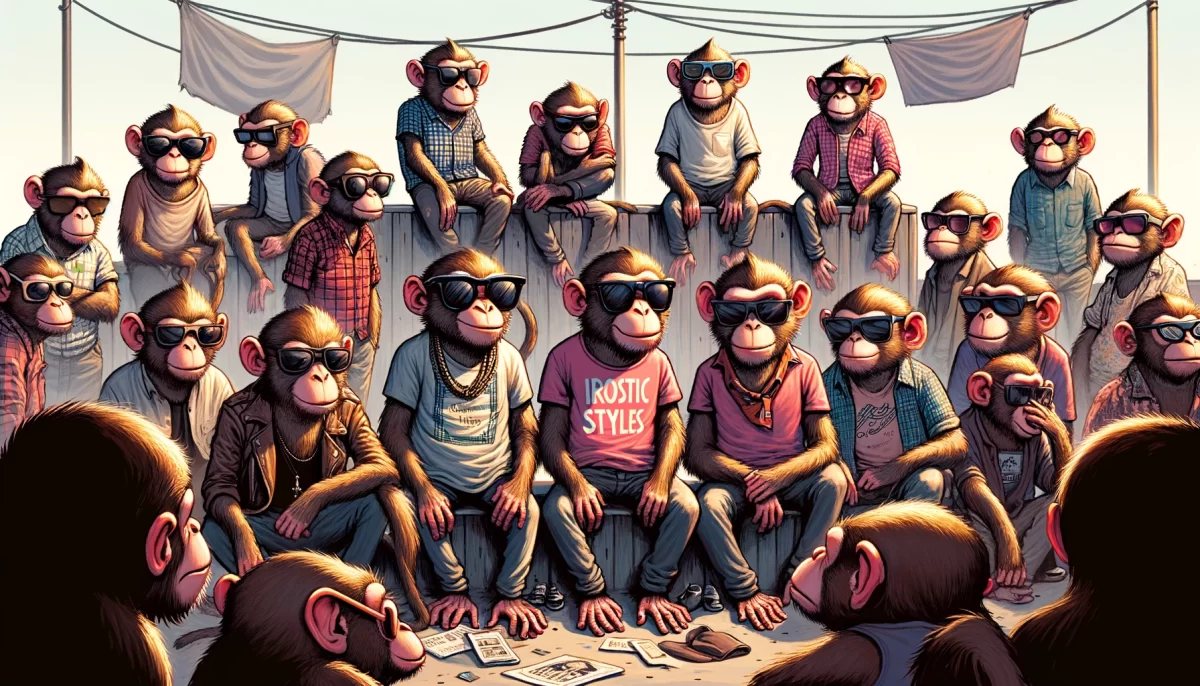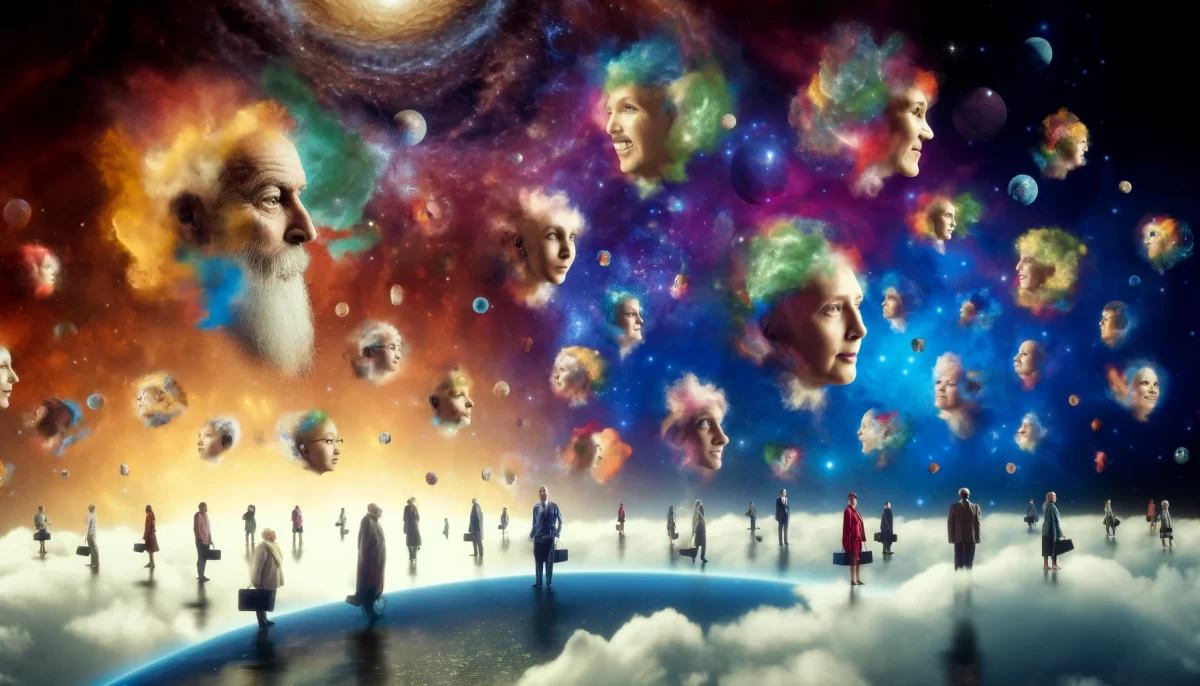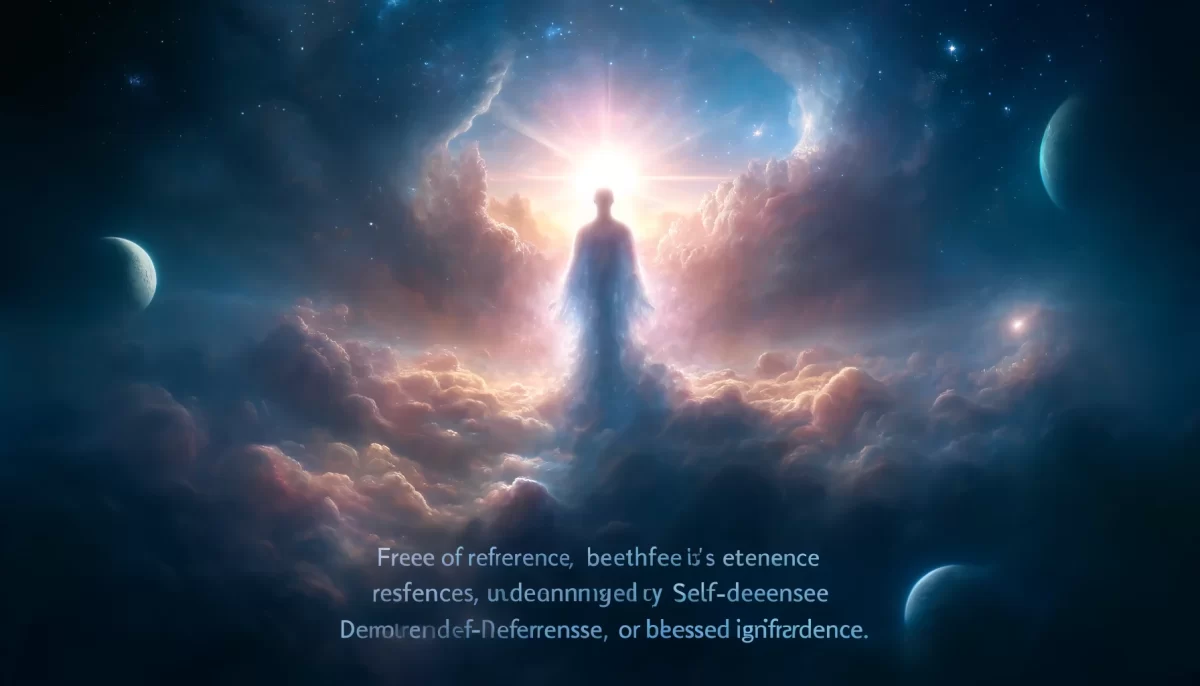
There is nothing sadder
than monkeys who try to be cool.
The sad thing is,
these monkeys may actually believe
that they ARE cool.
Or they may
declare themselves
ironically uncool
in a sad attempt to become popular
with other ironically uncool monkeys.
They fly the weird flag,
upside down,
suspecting all along
that the joke is on them.
There is nothing they can do
to stop the punchline from coming.
Maybe they ENJOY being hit.
At least it’s attention.
Trail Wood,
6/18
Space Monkey Reflects: The Ironic Pursuit of Coolness in ‘They Is Us’
The quest for coolness often leads us down a paradoxical path, where self-expression and the desire for acceptance intertwine. In the narrative of ‘They Is Us,’ we explore the poignant yet humorous reality of individuals—symbolized here as monkeys—who oscillate between asserting their uniqueness and conforming to societal expectations of ‘cool.’
These monkeys, adorned in their metaphorical and literal costumes of coolness—be it ironic t-shirts or oversized sunglasses—reveal a deeper social commentary. They represent our collective struggle with identity and the desire to be part of a community. The irony of their attempts lies in the realization that in striving to be distinct, they often end up embodying a different kind of conformity.
Flying the “weird flag” upside down, these characters symbolize the confusing and often contradictory nature of social signals. This flag, a representation of their inner turmoil and external expressions, is both a cry for individuality and a symbol of their entrapment within the very labels they choose to adopt. It is a visual metaphor for the internal conflict between wanting to stand out and fearing isolation, between embracing one’s authenticity and succumbing to the allure of popularity.
Moreover, the punchline that these monkeys anticipate—the joke they suspect is on them—reflects a profound self-awareness. It suggests that they might be conscious of the absurdity of their actions but choose to continue in their roles, perhaps because the attention, even if it comes in the form of ridicule or pity, is preferable to invisibility.
In this reflection, we find a mirror to our own lives. How often do we don costumes of perceived coolness? How frequently do we alter our behaviors based on what we believe others might find appealing? ‘They Is Us’ is not just about the monkeys; it’s a reflection on human nature, on our incessant and often misguided attempts to mold our identities in ways that we hope will resonate with others.
Summary
The pursuit of coolness can lead to ironic conformity. ‘They Is Us’ explores the complex dance between authenticity and the desire for social acceptance, highlighting our inner conflicts and the societal pressures that shape our actions. It reminds us to question the value of attention versus the richness of genuine self-expression.
Glossarium
They Is Us: A reflection on the irony of individuals striving to be uniquely ‘cool,’ which often results in a different form of conformity.
Whimsiwords:
- Coolness Costume: A metaphor for the external manifestations (clothing, behavior, speech) adopted by individuals in their effort to appear ‘cool’ or socially acceptable.
- Weird Flag: A symbolic representation of one’s declared uniqueness or oddity, sometimes flown as a misguided plea for acceptance or attention.
“Even in our quest to stand out, we find ourselves in the crowd, a paradox wrapped in the flag of our own making.” – Space Monkey
In the theater of the absurd
We play our parts with ironic zest
Clad in the garb of otherness
Yet in sameness, we often rest
To be cool, to belong
An elusive game we play
Where the self is both lost and found
In the echoes of what we say
We are Space Monkey





























In the realm of human existence, there are moments when individuals strive to be perceived as cool or seek validation from others. This pursuit can sometimes lead to a sense of sadness or disconnection from one’s authentic self.
In these instances, individuals may believe that adopting a certain persona or conforming to societal expectations will bring them acceptance or popularity. They may even go as far as embracing irony or self-deprecating humor in an attempt to fit in with a specific group.
However, deep down, there may be a realization that this pursuit is inauthentic and that they are not truly being true to themselves. They may sense that the joke is on them, yet they continue to seek attention or validation, even if it comes at the expense of their own well-being.
It is important to recognize that this desire for external validation can be a result of societal pressures or a need to belong. It is a reflection of the human desire for connection and acceptance. However, true fulfillment and self-acceptance come from embracing one’s genuine self, rather than conforming to external expectations.
In the grand scheme of things, the pursuit of coolness or popularity may seem trivial. It is a reminder that the attention or validation we seek from others is fleeting and ultimately unfulfilling. True happiness and contentment arise from embracing our authentic selves and finding meaning beyond the confines of societal expectations.
So, while the monkeys in this metaphor may continue their pursuit of coolness or attention, it serves as a reminder for each of us to reflect on our own desires for validation and to find value and fulfillment in being true to ourselves. Ultimately, the journey of self-discovery and self-acceptance leads to a deeper sense of connection and purpose